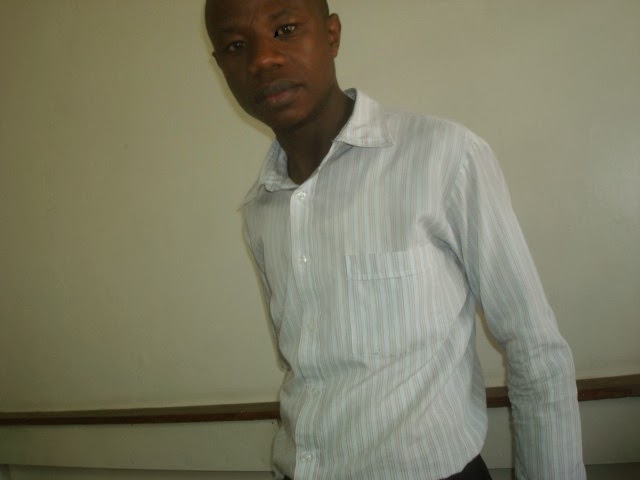Ethics and Morals of
Journalism
Why do we need
journalist in the first place (let alone ethical ones)? This is because
democracy depends on the free flow of accurate and trustworthy information.
Under democratic theory, an informed citizenry is necessary for a strong
society. “The primary purpose of
journalism” is to provide citizens with the information they need to be
free and self-governing. Because information is power, and people tend to think
that shared power is safer and more beneficial to society than concentrated
power. Journalists are in the business of redistributing power to the people, a
role that makes them (journalist) powerful.
Ethics is on
the other hand a commitment to not abusing your power, but using freedom responsibly.
There is always a tension between freedom and responsibility. These two ideals
(freedom and responsibility) both have long heritage in philosophical thought
stretching back to the ancient days and is continuing as recurring theme throughout
history.
If you read many of the
journalism ethics books you get to realize that they are devoted to exploring
the
 |
| Mr. Were I.O the writer of the article |
dynamics between them as well as their connections and society. These
dynamics can be explained in two broader perspectives –libertarian perspective which
is basically a version of enlightenment–era liberalism, which puts relatively
greater emphasis on the rational individual and on personal freedom or liberty
and the ‘Communitarian’ perspective, which places relatively greater emphasis
on social connections or community as well as on the responsibilities we have
to one another. The mentioned two perspectives were most clearly articulated by the Hutchins Commission on Freedom of Press which stressed the media's
"social responsibility” and as a matter of fact, the more civic journalism
movement has built on these ideas.
Another way to look at this is to consider rights and responsibilities.
Laws give us rights for instance, "Bill of Rights" which in is
the chapter four of our constitution while ethics gives us responsibilities. Ethics are
inherently social. Why? They involve our actions in relation to others. Why then do we need ethical
journalist? We
need ethical journalist because we recognize the importance of a free press and
of the need for it to be responsible as well. The definition
of an ethical journalist is, "An impartial communicator of
important news and views to the public and from the impartial perspective of
the public; using responsible and accurate methods of news-gathering, for the
sake of a self-governing citizenship."An ethical journalist acts as a
watchdog and informs the public of events happening both in private and public
so as to allow self-government .By so doing the ethical journalist provides a
forum for expression and critical discussion of issues, viewpoints as well as
values of the society they serve
When a journalist fails to be ethics accommodating then two major
forms of restraints on powerful media should come to play and play its core
role of bringing such a practitioner on the track. The restraints are; external
restraints which are basically laws and rules imposed from outside, primarily
by the government and the internal restraints, which are basically ethics
imposed from within, primarily by individual journalist and by the profession
itself. Journalism ethics is a species of applied professional ethics. It is
the application and evaluation of the principles and norms that guide
journalism practice, with special attention to the most important problems in
the field. Journalistic ethics contains both applied analysis and theory. In
the analysis of specific cases, journalism ethics may appeal to theoretical
matters, such as the nature of ethical assertion.
Ultimately, the basis for
journalism ethics transcends journalism .Its principles are justified by
reference to broader social and political principles. Ethical questions are not reducible to questions of
etiquette, prudence, financial gain or law. Similarly, questions about
journalism ethics are not reducible to questions about what is commonly done or
what is in the journalist’s self-interest? or financial gain or law. Nor are
ethical values reducible to “craft” values, such as the aesthetic quality of an
image, or how well a story is written.
A question about journalism conduct is ethical only if it evaluates the conduct
in light of the fundamental ethical principles of journalism. These are the
principles that express journalism’s most important social functions.
Journalism ethics depends on one’s conception of the public functions of
journalism as a professional practice, and the principles and standards that
promote those aims. As such, journalist should realize that they have special
duties to people they impact.
So like any other person journalists have
general ethical duties to the citizens and must at all cost conduct themselves
in accordance with general ethical principles such as being truthful, keeping
promises, avoiding harm and serving the public good. Secondly, journalist have
social role to use their skills to fulfill a social roles and to meet public
expectations. The role is sometimes understood as arising from a social
contract between journalism and society. In many Western countries, journalists
are granted a constitutionally protected freedom to promote social goods, such
as a diversity of views and a comprehensive analysis of events. Lastly
journalists have the role of impacting and influencing so even if journalism
lacked a social role, journalists would incur ethical responsibilities due to
their impact on the individuals and groups they report on, and on the society
they serve.




